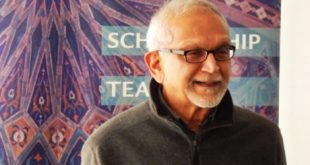In this thesis, the author examines contemporary manifestations of the Islamic practice of zakat and its relationship with mainstream international development.
Zakat is one of the five pillars of Islam; it requires all Muslims who possess above a certain level of wealth to pay roughly 2.5 percent of their disposable income to eight beneficiary groups defined in the Qur’an. Over the past several decades – and especially in the past 15 years – zakat has become an increasingly institutionalized, transnational practice managing billions of dollars of aid every year. Contemporary zakat institutions have also placed an increasingly strong emphasis on poverty alleviation that has brought their activities in closer contact with those of mainstream international development organizations. Despite the important role that zakat institutions play in social welfare and the significance of zakat practice across the Muslim world, there has been little scholarly analysis of contemporary zakat practice, particularly regarding its relationship with international development.
This thesis seeks to initiate a dialogue around the relationship between contemporary zakat institutions and mainstream international development organizations, particularly the potential for coordination or conflict between them. Such a dialogue must be based on a strong understanding of zakat as a complex, dynamic, and diverse practice. To establish this foundation, the author begins with an analysis of contemporary shifts in interpretations and manifestations of zakat. Following this analysis, he conducts a closer examination of the structure, activities, beneficiary groups, and discourse of contemporary zakat institutions through case studies of the West Bank and Lebanese Zakat Funds. Finally, he compares the goals, methods, and activities of zakat institutions and mainstream international development organizations like the United States Agency for International Development (USAID) and the World Bank. This allows him to examine the potential for different forms of coordination between zakat institutions and mainstream development and discuss challenges to such coordination. The writer concludes with recommendations on key strategies for enhancing coordination that will be in the interest of both zakat institutions and mainstream development organizations, and ultimately enhance the effectiveness of the aid they deliver.
Thesis, “Faith in Finance, The Role of Zakat in International Development” By Allison Dale Minor, B.A.
 Ijtihad Network Being Wise and Faithful Muslim in the Contemporary World
Ijtihad Network Being Wise and Faithful Muslim in the Contemporary World
